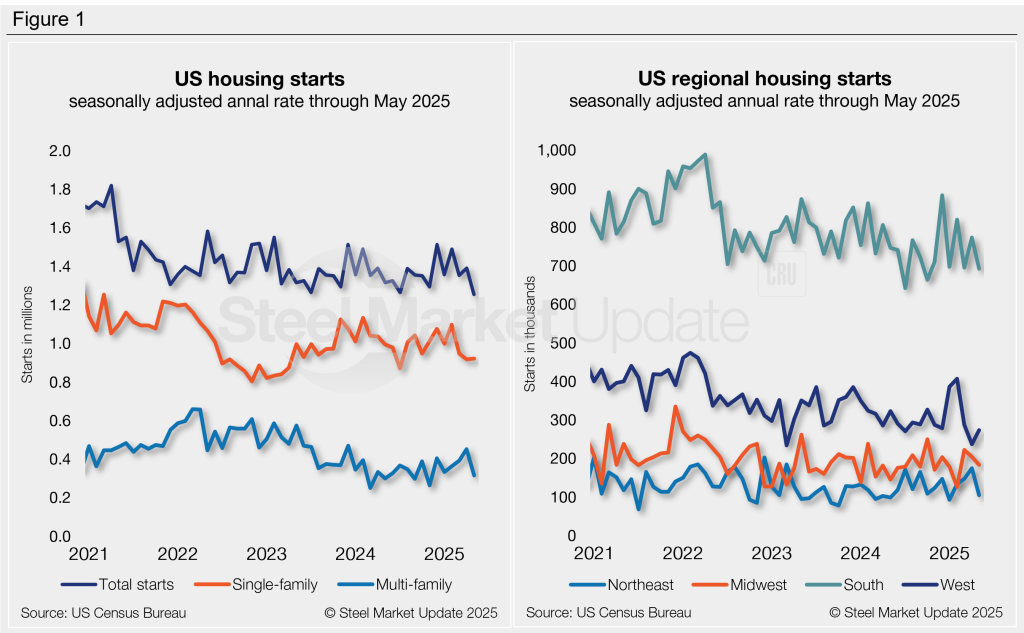Market Data
June 19, 2025
Multi-family pullback drives housing starts to 5-year low in May
Written by Brett Linton
US housing starts tumbled in May to a five-year low, according to figures recently released by the US Census Bureau. Realtor.com suggests that builders are feeling pressured by high interest rates, rising material costs, and labor shortages, all of which are contributing to weakening sentiment.
Total housing starts stood at a seasonally adjusted annual rate (SAAR) of 1,256,000 units in May, a 10% reduction from April’s revised rate and 5% below the same month last year.
Single‐family housing starts in May were nearly flat from April at 924,000 units, but 7% lower than levels one year prior. Multi-family starts were the main contributor to May’s steep decline, falling 30% month over month (m/m) to 316,000 units. However, multi-family starts were 5% higher this year compared to May 2024 (Figure 1, left).
“This underscores the effects of the current trade war on homebuilding, augmented by worsening labor shortages and growing concern from builders about housing demand,” commented Danielle Hale, chief economist of Realtor.com.
“With tariffs raising materials costs and immigration policy likely worsening labor shortages, the supply side of the equation is difficult,” Hale said.
Regionally, combined single-family and multi-family starts declined across most of the country from April to May, with one exception (Figure 1, right). Starts dropped 40% m/m in the Northeast and declined 10% in the Midwest and South, but rose 15% in the West.
At the same time, the overall number of building permits for privately owned housing units declined 2% from April to May to a SAAR of 1,393,000 units. Single-family building permits were 3% lower m/m, while multi-family permits eased 1%.








